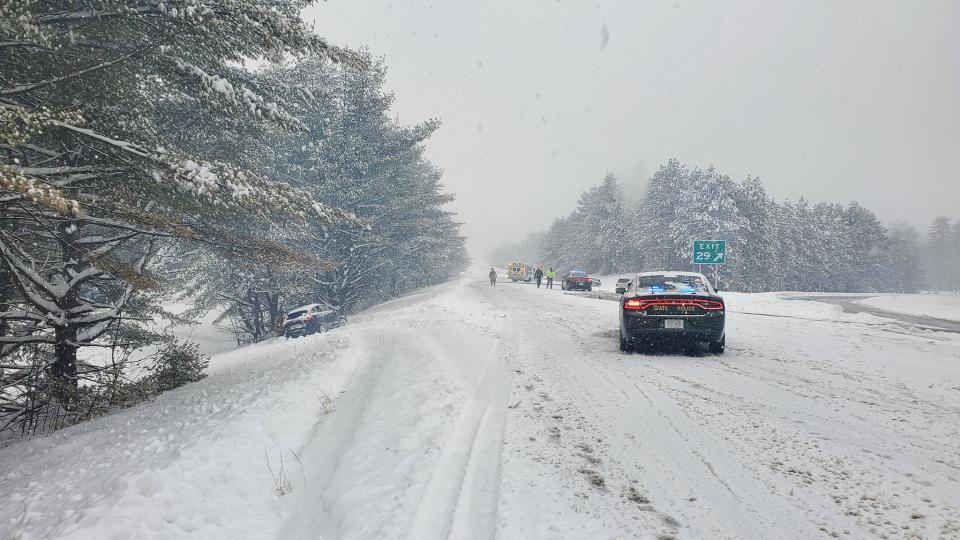Spend time with “Power & Secrecy,” The News & Observer’s latest investigative report on how public-policy decisions affecting North Carolinians are being made with negligible input from the public.
It’s not a new theme.
But it’s important that we look after the public’s interest since lawmakers — especially the ones in charge — are looking after themselves.
The N&O’s investigations and state politics teams have reported extensively on how public records are less accessible to the public, including provisions buried deep in the state budget that gave lawmakers power on whether to release their own emails.
The N&O’s subsequent reporting, led by Avi Bajpai, showed a bipartisan pattern of lawmakers who don’t give a rip about transparency.
The N&O requested all 170 members of the North Carolina House and Senate to provide all of their communications from Sept. 19, the day that Republican leaders reached an agreement on the state budget after months of negotiations. Thirty-eight lawmakers responded — that’s about one in five, or 22 percent — which is a failing grade no matter which decade you studied math or civics.
We launched Power & Secrecy as an ongoing investigation, so expect more stories throughout the year and likely beyond. (You can find Power & Secrecy stories and others by bookmarking the In the Spotlight page on newsobserver.com. In the Spotlight focuses on ongoing topics of high interest that are driven by The News & Observer’s accountability reporting.)
N&O reporters Dan Kane and Adam Wagner contributed the opening three stories of this investigation. The headlines define the issues … and should cause you to pause:
The stories were challenging but important. Here’s an edited Q&A with Dan and Adam on why this matters:
What were the reporting challenges that you faced?
Dan: The immediate challenge I faced is when secrecy increases, it’s harder to find the facts to show that the secrecy is a problem. State lawmakers released few records explaining why they added $100 million to what critics call a transportation slush fund, or why they gave a startup company $26 million to underwrite its development of a light-based COVID treatment. Several lawmakers, particularly House Speaker Tim Moore, declined to explain their spending decisions. … Readers should understand that one of the purposes of secrecy is to limit how much they know and understand about how leaders are running their government and spending their tax dollars. That’s why they should care about secrecy, even if the reasons behind it aren’t clear.
Adam: The main reporting challenge we faced for my story was taking what can be very technical, arcane environmental policy and putting it in our readers’ communities. It’s easy to think of something as just a section in the budget until you’re standing over a wet, dirty pile of Styrofoam flakes next to Third Fork Creek in Durham.

Summarize your takeaway from the reporting. Any surprises?
Dan: I was surprised that lawmakers would say the EmitBio money was to develop a light-based treatment for “COVID-19 patients with severe respiratory involvement,” when the company’s own literature says the treatment would be for mild to moderate cases. That’s a big discrepancy, and given that by mid-2022 we had vaccines and Paxlovid, it raises the question of whether there actually is an urgent need to put public money behind this.
Adam: I think one thing that maybe wasn’t a surprise but was a takeaway was understanding that these changes have touched the lives of millions of North Carolinians. In some cases, it’s providing the grounds for the rollback of wetlands protections; in others, it’s preventing the state from enacting rules or joining programs that supporters say would clean up air quality and more quickly achieve climate goals.
There is a greater good here.
North Carolina is growing, and our population is expanding and changing demographically.
Essentially, we’re open for business.
But the public’s rights in how state lawmakers act — increasingly that seems to be none of your business.
Says Cathy Clabby, McClatchy’s North Carolina investigations editor: “Elected officials work for the people of this state, people with diverse needs linked to their wealth, geography and many other things. Seizing control over who sits on university boards, selects which charter schools may rise and how political districts get drawn reduces debate. That’s a concern because informed debate is democracy’s protective immune system.”
Bill Church is executive editor of The News & Observer.
Signup bonus from




